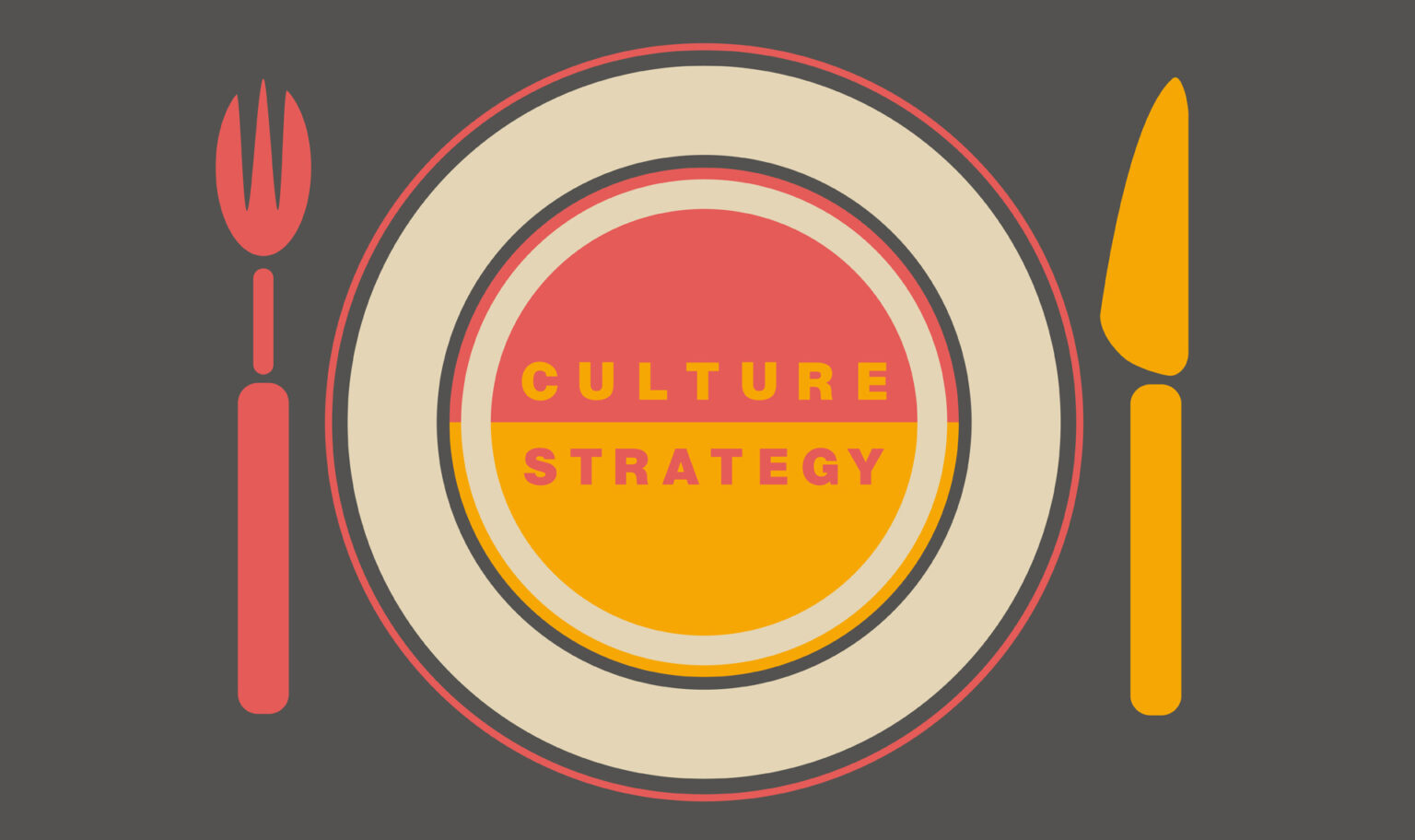by Tim Clouting
Insights from Chairmen, NEDs, CEOs and Investors in the Travel, Hospitality and Leisure sectors.
Culture is defined as “the beliefs and behaviors that determine how a company’s employees and management interact… and includes an organisation’s expectations, experiences, philosophy, and values that hold it together.” Perhaps most famously, the importance of culture was summed up in Peter Drucker’s famous quote “Culture eats strategy for breakfast”, but to what degree is this still true in today’s disrupted age? In a business world awash with private funding, and an insatiable appetite from shareholders of public companies for increasing returns year on year, is culture still seen as a priority by current business leaders?
To find out, at our latest boardroom event for Chairman, CEOs and Investors in the Leisure, Hospitality and Travel sector we discussed three areas relating to strategy, culture and performance. We posed the questions:
1. As a Board, who often site culture as being in their top three priorities, how much time do you spend thinking/talking about it? What do you do to actively manage and improve it and how do you set about changing it?
2. For those in a turnaround, where success can be determined by the correct sequencing of what to tackle/when, where does culture (or defining your purpose) come in the list?
3. To the Chairman and investors in the room, to what extent do you care about the style/culture that your CEOs foster? For CEO’s, how much do you discuss it with your investors/shareholders? What is the value of culture?
1. How do you actively manage and improve culture?
Culture Relies On Purpose And Values
It’s been said that if culture eats strategy for breakfast, then it gets its appetite from purpose. If you don’t therefore stand for something, you stand for nothing – a very dangerous place to be for any organsiation.
The CEO of a leading casual dining business discussed how organisations grow and change over time. As they mature, they often required new leadership, as long-term employees (who have always acted in a certain way) were often the most resistant to change. It is healthy for business to evolve, and things shouldn’t stay the same. Your values should remain stable but you should be able to evolve as an organisation, and culture is central to doing that successfully.
Culture and Strategy Are Entwined
A portfolio Chairman from within the Hospitality sector commented that culture and strategy are inherently entwined. One was not more important than the other, they were opposite sides of the same coin, and an organisation could not truly reach its full potential unless both were in balance with one another, one supporting the other and vice versa.
In his view, when comparing the different dynamics at play between the retail sector and the hospitality sector, he felt there was a much stronger focus on culture and service in the hospitality space.
Culture Is About Trust
The Chairman of a rapidly growing online travel organisation talked about how as a CEO he always spent a huge amount of time and care building the right dynamic in his senior team. He actively sought to promote trust, empowerment and fun and would purposely refrain from seeking to know all the detail (which was a really challenging personal transition for him). However, the trust had to work both ways so if there was a potential issue, he needed to know absolutely immediately. No hiding, no trying to rectify it in the background, his view was to let him know immediately and they could sort it together, thereby ensuring he could manage his board most effectively.
One serial investor in the tech and digital sector said that despite the obvious importance of product and service, most technology companies lived or died by their culture. The future of a brand is determined as much by the values, culture and behavior of its people, as it’s tech prowess – hence the continued success of Facebook, Google, Amazon etc. who continue to innovate and push forward in to new areas, channels and markets as they have an insatiable desire to test, learn and adapt.
Culture Isn’t Ping Pong Tables
For another Chairman at the lunch, culture wasn’t about trendy work spaces, free breakfasts, comfy chairs and ping pong tables; it’s about the habits people have formed, how they make decisions, how they respond to challenges, pressure and discomfort. It’s also based on what’s been incentivised, rewarded, reinforced, and also punished in the workplace.
Culture Is Reinforced By the Executive Team
The leader of one large UK multi-site casual dining organisation outlined the importance of culture to their rapid growth over the last 10 years. While he recognised that the culture changed as the company expanded from 30-50 sites, from 50-80 sites and then 80-120 sites, getting bigger didn’t mean the change had a negative impact on the culture. Conversely, as the business grew, the senior team ensured they continually reinforced the original values of the brand. Sometimes you also had to let senior people go, those who were too tied to “how things used to be”, or if the business had outgrown their capability. The senior team spent a lot of time collectively discussing their growth issues.
2. Particularly in turnaround environments, where does culture sit on your list of priorities and how much time do you set aside for motivating your teams?
Legacy Culture Problems Can Have Lasting Consequences On Performance
A CEO of a sizable PE-backed hospitality business (acquired from the original founders) spoke of the challenge of uncovering a culture that inherently didn’t value its people. Not only was the culture of the brand dysfunctional, there was very little infrastructure, systems or process. Decisions had always been made by the founders, so their exit created a void of indecision.
In a worsening market, he had worked hard to try and create trust with the old team while formulating a new vision and strategy. He’d tried incredibly hard to create a new culture and build a talent pipeline, but it had been extremely difficult, as he’s had to build from the top down as well as bottom-up. This has slowed his transformation/growth plan as systems/processes and trust needed to be built over time and couldn’t be created overnight.
The dysfunctional culture has made everything harder and slower to implement. A strong, clear culture helped enable a business “to sing”.
Incentivising A Positive Culture
The CEO of a recently listed pub group talked about the critical importance of culture for all hospitality organisations. His strategy was always to empower his teams and devolve as much ownership or accountability to those people running the sites. In hospitality, and certainly the pub/restaurant and casual dining sector he felt it important to promote a sense of fun (as this would translate to the customers), so recruiting the right people at all levels was key.
Creating a strong people-focused culture wasn’t about being soft, warm and fluffy, it was a critical building block in creating a sustainable business. In his view, being people-focused was a highly commercial strategic decision, as valued and well-rewarded employees often delivered over and above to delight the customer. In his business, he’d created an employee incentive programme where 3% of overall EBITDA went in to a central bonus pool for every single member of the team.
While he had freedom to take these decisions, he recognised that not many private equity owners would encourage that approach, especially in such a challenging market. However, he outlined how his approach created a really strong culture where all team members were aiming for the same thing. A happy by-product was that their culture also became self-policing, in that if employees thought others were slacking or cutting corners, they were more inclined (and empowered) to call it out. It also helped them with recruiting/retaining staff, creating a camaraderie where even those on the lowest wages shared in the overall success of the organisation.
Sacrificing Culture For Short-Term Performance
One guest talked about his time working for a well-regarded CEO earlier in his career, who had an absolute and unwavering focus on hitting the quarterly/yearly targets. So while they invariably achieved this every time and the CEO was externally deemed as particularly successful, within the organisation it created a very short-term, tactical culture/environment. All decisions boiled down to “how can we hit this month’s/quarter’s number”. Therefore the culture became more about management (following orders) as opposed to empowerment and leadership. Employees weren’t valued and were seen as disposable. People did what they were told, but a fear culture persisted. In one respect the organization was very successful yet he also felt they had failed in a broader sense.
Dictatorships Can Be A Benefit Short-Term But A Talent Drain Long-Term
One NED said he’d previously worked for a large FTSE organisation which had a “do as I tell you” culture, driven by a domineering CEO. Over time most of the really talented people left, as they wanted to contribute, to add value and not just implement (conversely all the more average people stayed a long time and progressed into senior leadership positions). There was no debate, no-one capable of thinking for themselves or challenging the CEO. As the share price continued northwards the Board became rather too comfortable and failed to challenge new ideas, deferring to the expertise of the successful CEO. Everything was geared towards getting the numbers in the right place. However, when that CEO moved on, a lack of investment over many years quickly caught up with the organization and it was soon plunged in to crisis and various profit warnings. Culture and purpose were therefore critical for the long term health of a brand and you ignored it at your peril. Perhaps however, he commented this was simply a natural by-product of society’s obsession on immediate success, where CEO’s were given less time to deliver results.
3. As Chairman or investors, to what extent do you care about the style/culture that CEOs foster? For CEO’s, how much is it ever discussed with investors/shareholders?
Despite The Importance, Culture Still Has No Monetary Value
To the Partner of a large USA based Private Equity fund, we asked whether they ever discussed the importance (or value) of culture? He said they didn’t, as it was difficult to truly assess at due diligence stage, and therefore impossible to place a value on it. In assessing whether to buy a new asset, he commented that you could evaluate whether it was a well-run company or not, but that was really all you were focused on. Similarly, as you can’t really monetise or charge a premium for “culture” when you come to sell a business, they didn’t spend a lot of time discussing it throughout the lifecycle of their investment (unless it was having a significant impact on operational or financial performance).
Good Or Bad, Culture Is Deep Rooted
A CEO who used to run a large global organisation with over 20,000 staff explained how the organisation always placed importance on reinforcing the original values of the initial founders. Employees therefore were naturally supportive and collaborative and would gravitate to help functions outside of their core area of expertise. This was taken for granted and was woven into the organisation’s DNA. It is only since leaving and becoming CEO of a larger competitor that he has truly recognised its value.
Now leading an organisation with a more corporate culture, where entrenched vertical silos have developed over time, it was much harder to create a feeling of togetherness. The investors and board never asked about it. Asked how he is confronting this challenge, he admitted it is a slow process. You can influence and change the culture by removing or replacing a few of the senior functional heads who most embody the negative aspects of the culture, but it takes time to filter through the organisation.
It’s Better To Have 50% Of Something Than 100% Of Nothing
The founder of a multi-billion leisure organisation talked about how he’d set out to create the type of business he would have loved to work in (as a younger man). Over twenty years the senior team had largely stuck together and all made a lot of money along the way. They now worked for the love of it now rather than the pay-cheque. He was happy to share the wealth creation not only with his immediate team but disperse it throughout the organisation. So wealth creation was definitely an aim but was not the end goal. While he could have personally made himself a lot richer, he wanted to reward those who had helped him build the company along the way. He also felt this approach would create a better long-term business and legacy, an environment where the majority of people loved coming to work.
Cultural Initiatives Can Encourage Executives To Stay In Touch With The Front Lines
The CEO of a sizable hospitality organisation talked of the importance of keeping their employees absolutely at the forefront of their decisions. The whole senior executive team would “adopt a business unit” every other Friday where the team would work in one of the units, talk, listen and engage with those on the front line. Out of this, they could take practical learnings and that allowed them to make improvements that really started to make a difference, from their induction and appraisal processes, through to shift-patterns and working environment. They are currently looking at getting rid of their twice yearly appraisal process and replacing with empowering/mentoring sessions instead.
What Next?
So going back to Peter Drucker’s famous quote – does culture still eat strategy for breakfast? From the perspectives in the room it seemed that while the long-term benefits of a positive culture were clear to see, in the short-term a focus on delivering results and value to shareholders will often be prioritised. However, the most successful organisations over a sustained period always had clear purpose and a strong thriving culture. Without due care and attention, it was all too easy to see this erode, sometimes acting as the first step to terminal decline and extinction. The majority of people want to work for an organisation where they are valued, have clear direction and a sense of purpose. It is those businesses, when combined with a compelling strategy that truly stand out and will win the war.
I hope you enjoyed reading the latest article. We have more Travel, Hospitality & Leisure Boardroom events planned throughout 2018.
If you would like to register your interest in attending a future event, then please email me direct or get in contact with my EA Hayley Williams on hwilliams@savannah-group.com, or on +44 (0) 203 781 7445.




